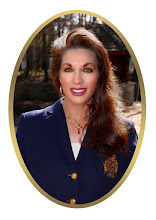
Q. You have 24 hours left on Earth: Where would you go, and what would you eat?
A. "Sukiyabashi Jiro in Tokyo. I would sit down in front of the greatest sushi master that I've ever met and eat whatever he puts down in front of me. That would probably take about 22 minutes, if past experiences are my guide. I've had it before, and it's one of the greatest meals of my life. If I'm going to be shot in the back of the head after a meal, that would be a good way to go."
Q. You've made it well-known that you started in the restaurant industry by washing dishes. What's one piece of advice that you wish you could tell your former self about the restaurant industry?
A. "I was a very happy dishwasher! I just wanted to be part of it. I didn't want to necessarily rule the world. I made a lot of decisions along the way where I chose to have fun rather than to excel. I chose to be a chef rather than the student of a really talented first-rate chef. I made a conscious decision not be the best that I can be. I was pretty set in my ways about the kinds of kitchens that I felt comfortable in and wanted to work in, and that was not conducive to me ever becoming a Michelin-starred chef. I think that the greatest lesson I ever learned in the restaurant business (and I learned it early) was: Show up on time. Whatever work, whatever commitment, you have, always show up on time to show the people who you work with the respect that you can at least do that."
Q. Which chefs are most exciting to you now that you could see establishing future partnerships within your publishing career?
A. "For the chefs that I've published and hope to publish, it's not just about the food. It's people who are doing interesting things and who have an interesting story and point of view. The recent chef books I would have loved to publish would be Gabrielle Hamilton's memoir (Blood, Bones & Butter: The Inadvertent Education of a Reluctant Chef) of The Joe Beef Guys. There are real voices there of people who are saying something new and interesting to create a whole world and mindset that explains the food. Generally speaking, I look for someone who has a powerful voice and can explain why they cook the way that they cook in a personal and dynamic way. Roy Choi's book is coming out soon, and I think that he will be a good example of that."
Q. What's the best advice that you have for restaurateurs facing the challenges of today?
A. "Today's restaurants need to have a concise vision of what they are good at and what they have to offer that is different from the guy across the street. Restaurateurs need to speak in a strong confident voice, saying, 'I might not be good at some things, but I'm good at this, and this is what I'm going to do.' I think the days of trying to be everything to everybody are over now. We have an empowered chef class now and a much more curious, daring and younger dining public. I think the future is going to be chefs who speak with a coherent, concise voice with a real identity. Own that this is what I do. More of like in Asia where you have the roast duck guy and the chicken and rice guy."
Q. What do you look for in your favorite cocktail?-
A. "I am a big fan of cocktails, but if takes you more than 10 minutes to make it, there's a problem. I'm an old-school guy: Give me a good Manhattan, old fashioned, or the perfect Negroni with the finest gin, vermouth and campari with maybe a slightly toasted almond zest, and I'm a happy guy. I think the standard for me is, is the drink that I'm about to make with bourbon better than bourbon?"





No comments:
Post a Comment